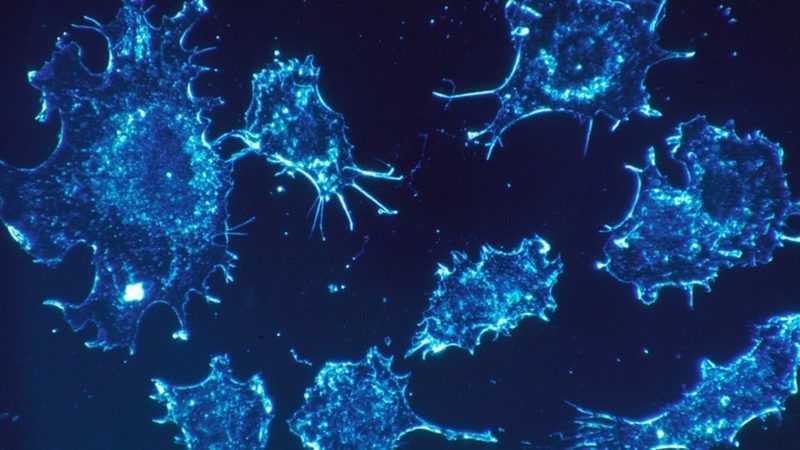No, Cuba Is Not Exactly the Cancer Pioneer Nova Attempts to Present
The myth that this authoritarian island provides better medical treatment just won’t die.

Nova: Cuba's Cancer Hope. PBS. Wednesday, April 1, 9 p.m.
I feel moved to poetry by the latest episode of Nova, the PBS science documentary science series. Perhaps you remember the classic lines about the little girl with the little curl in the middle of her forehead: "When she was good/she was very, very good/But when she was bad, she was horrid."
That's perfect description of Cuba's Cancer Hope, which is partly an absorbing exploration of the use of immunology in the treatment of cancer, and partly an embarrassingly puffy ode to the Castro brothers' totalitarian island. Watching it might trigger your latent schizophrenia; or maybe just induce you to write a pleading letter to TiVo encouraging them to get to work on that long-promised button that allows to automatically skip through communist drivel with a single click. Let me know how it turns out.
As recently as the 1970s, researchers who tried to figure out why the human body's own immune system didn't attack cancer cells were derided in medical textbooks as believers in witchcraft. (Seriously: Cuba's Cancer Hope shows an example, a useful reminder to those who think that Science [cap S is deliberate] speaks with one immutable and eternal voice are quite daft.) The prevailing belief was that T-cells and other warrior elements of the immune system would never attack tumors because they were part of the body itself.
The witches—er, researchers—kept chipping at the cancer-as-self theory until scientists in the United States and Japan won a Nobel prize in 2018 for showing that two proteins that act as brakes on immune cells were being tricked into action by cancer cells. If those proteins could be reined in, the conventional wisdom now goes, the human body itself could be a potent weapon against cancer. Cuba's Cancer Hope, with sharply illustrative prose and graphics, gives a lucid account of this part of the story.
But when the tale turns to Cuba's development of a lung-cancer vaccine called CIMAvax that enhances the immunological approach with genetic engineering, the show goes off the rails. Cuba, where the national obsession with cigars has triggered a serious lung cancer problem, began experimenting with the drug in the early 1990s. But it wasn't until President Obama restored U.S. diplomatic relations with Cuba in 2015 after a 54-year break, making it easier for Americans to visit the island, that CIMAvax attracted much international interest.
On the Internet, it quickly acquired the mythic status once held by laetrile, another supposed cure for cancer suppressed by The Man. Several hundred Americans traveled to Cuba to take CIMAvax, and Cuba's Cancer Hope is full of testimonials from them—tinged with bitter recriminations against the Trump administration for reviving some of the restrictions on travel to Cuba and forcing them to "break the law" to keep from dying. (Actually, seeking health care in Cuba was never on the list of approved reasons to visit Cuba, and would-be patients can get away with it now the same way they did under Obama: By lying about it to U.S. Customs inspectors, who unless there's an AK-47 in your suitcase, have no way to check what you were doing there.)
Their stories go unchallenged by Cuba's Cancer Hope. In fact, the only question the show has about anything is, "How is it possible for a county as poor and isolated as Cuba to come up with cutting-edge medicines like this?" The answer, of course, is the resplendent humanitarianism of Fidel Castro, who raised Cuba from a pestilent sinkhole into a model of public health that rivals anything in the First World. Though the United States gets a little credit for imposing that nasty embargo that forced Cuba to become heroically self-reliant.
A much more accurate answer would be: Cuba did nothing of the kind. It was anything but isolated—its top immunology researchers learned their trade at the University of Texas. Its supposed advances in public health under Castro are imaginary; it ranked near the top of Latin America in life expectancy, infant mortality and a variety of health statistics before Castro took power, a fact that PBS once knew. (As for current health-care data from Cuba, about the only person who believes any of it is Bernie Sanders.)
And most of all, CIMAvax is far from a "cutting-edge" medicine. The truth is that it barely works at all. As Cuba's Cancer Hope admits in a single throw-away line, "Cuban clinical trials show that it extends life three to five months on average." The five-year survival rate for its users is about 15 percent, roughly the same as that for patients treated with approved U.S. cancer therapies. American oncologists hoot in frustration at patients who want help getting to Cuba to obtain CIMAvax. Says one, quoted in a recent report by Public Radio International: "Without seeing new stats, it's not that impressive… . I am not too worried about people not being able to go to Cuba."
Some American medical authorities think CIMAvax shows promise, and a clinical study of the drug is underway at the Roswell Park Cancer Institute in Buffalo. Perhaps it will someday be proven effective. The same could be said of about 200 other clinical studies of various lung cancer treatments being carried out at the moment, but there's no sign of Nova doing an episode on "Norway's Cancer Hope" or "The Mayo Clinic's Cancer Hope." Of course, none of them would invite any discussion of the genius of Fidel Castro.


Show Comments (41)